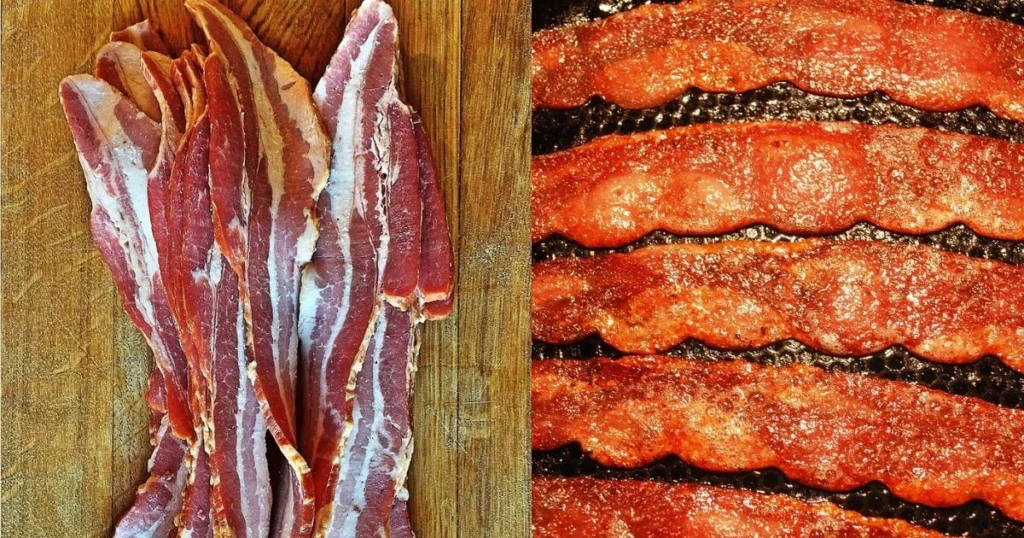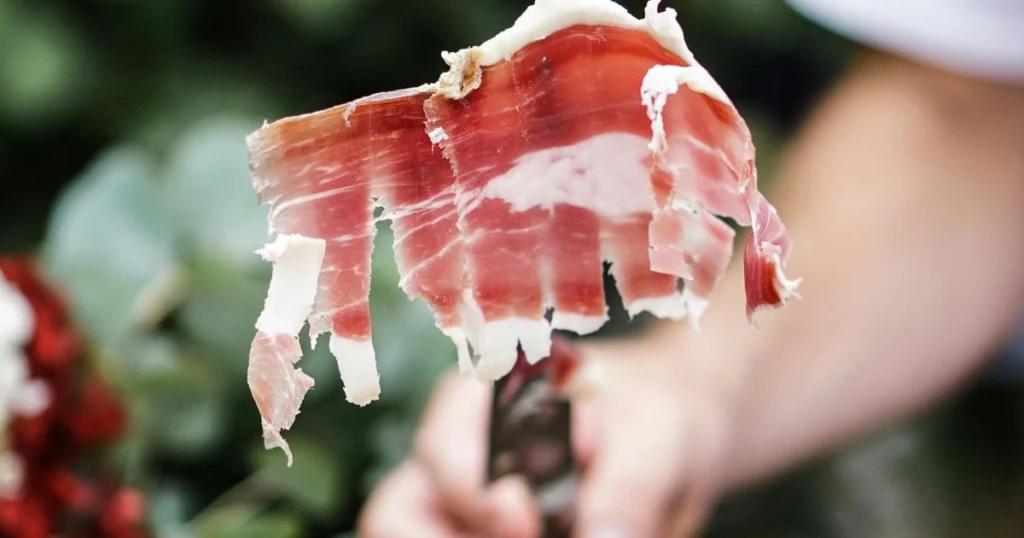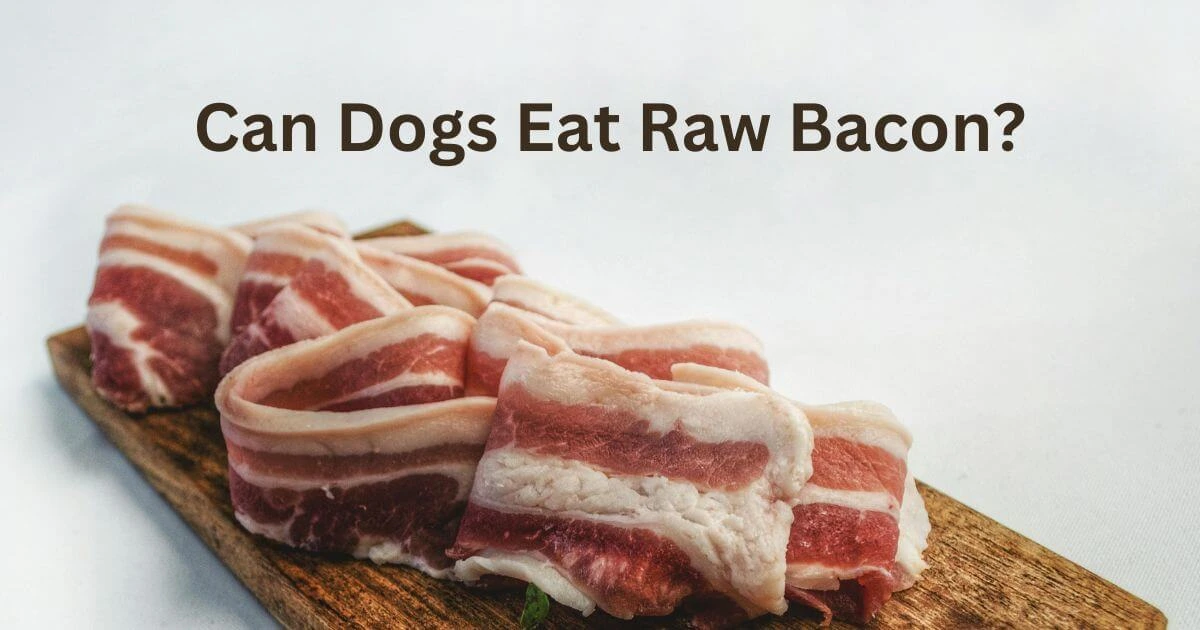Can Dogs Eat Raw Bacon? Shocking Risks and Benefits Revealed!
Table of Contents
Bacon is a favorite breakfast item that many dog owners may feel compelled to share with their pets. However, when it comes to feeding raw bacon to dogs, it is critical to weigh both the hazards and the potential advantages. In this post, we’ll look at whether dogs can eat raw bacon, the risks it may pose, and whether cooked bacon is a safer option.
Can Dogs Eat Raw Bacon?
Raw bacon, like other uncooked meats, has the potential to carry harmful bacteria such as Salmonella or E. coli. These bacteria can lead to foodborne illnesses, causing symptoms like vomiting, diarrhea, and lethargy in dogs. In some cases, severe bacterial infections may require veterinary intervention. While some dogs may tolerate raw meats better than others, raw bacon is particularly risky due to its high fat content and potential contaminants.
Additionally, raw bacon contains preservatives and additives such as nitrates and nitrites, which may have negative effects on a dog’s long-term health. Processed meats are linked to increased risks of certain health conditions, making raw bacon an unhealthy choice for dogs.
Can Dogs Eat Raw Bacon Fat?
When deciding if dogs can eat raw bacon, another factor to consider is bacon fat. The excessive fat content can cause digestive problems, obesity, and even pancreatitis, a serious and painful ailment. Feeding your dog raw bacon fat on a frequent basis can also lead to long-term health issues, such as heart disease. It’s recommended to avoid offering your dog raw bacon fat in favor of leaner, healthier options.
What Happens If My Dog Eats Raw Bacon?
If your dog accidentally consumes raw bacon, monitor them closely for any signs of illness, including digestive distress, lethargy, or fever. Some dogs may experience mild stomach upset, while others could develop food poisoning or pancreatitis due to the high-fat content.
In most cases, a single small piece of raw bacon may not cause severe issues, but repeated consumption increases the risk of health complications. If symptoms persist or worsen, contact your veterinarian for guidance.
Should Dogs Eat Raw or Cooked Bacon?

Given the potential risks of raw bacon, some dog owners may wonder if cooked bacon is a safer option. While cooking eliminates harmful bacteria, bacon remains a high-fat, salty food that is not ideal for regular consumption by dogs. Excessive salt intake can lead to dehydration, high blood pressure, and even sodium ion poisoning in severe cases.
If you choose to offer your dog a small piece of cooked bacon as an occasional treat, do so sparingly and ensure it is plain—free from added seasonings, garlic, or onion, which are toxic to dogs. However, it’s best to avoid making bacon a regular part of your dog’s diet.
Healthier Alternatives to Bacon for Dogs

Instead of giving your dog bacon, consider healthier treat options such as:
- Lean, unseasoned cooked meats like chicken or turkey
- Plain, boiled eggs
- Dog-friendly fruits like blueberries or apples (without seeds)
- Store-bought treats formulated specifically for dogs
- Cooked vegetables like carrots or green beans
These alternatives provide protein and nutrients without the excessive fat and salt content found in bacon.
Related Topic: Can Dogs Have Pork Chop Bones?
If you’re wondering about other pork products, you might be interested in learning whether dogs can safely eat pork chop bones. Check out this detailed guide: Can Dogs Have Pork Chop Bones?
Final Thoughts: Should You Feed Your Dog Bacon?
While a small piece of cooked bacon on rare occasions may not harm your dog, raw bacon poses too many risks to be considered a safe treat. The risk for bacterial infection and the high fat content make it an unhealthy choice. If you’re considering adding bacon or any new food into your dog’s diet, it’s always advisable to visit your veterinarian for expert advice.
Your dog’s health and well-being should always come first, so choosing nutritious, safe options will help them stay happy and healthy.

